Environment
-
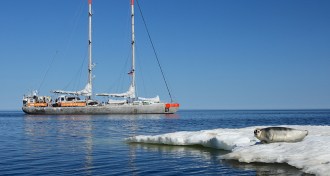 Oceans
OceansThe Arctic is a final garbage dump for ocean plastic
Ocean currents dump plastic garbage from the North Atlantic into previously pristine Arctic waters, new research shows.
-
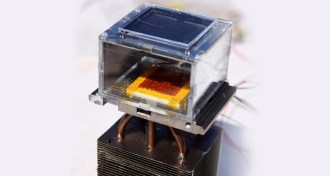 Chemistry
ChemistryNew tech harvests drinking water from (relatively) dry air using only sunlight
A prototype device harvests moisture from dry air and separates it into drinkable water using only sunlight.
-
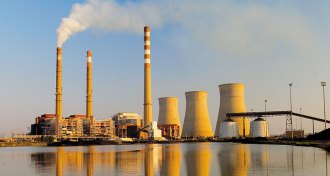 Environment
EnvironmentWhen coal replaces a cleaner energy source, health is on the line
Health concerns prompted a shift from nuclear power to coal. But that shift came with its own health troubles, a new study suggests.
-
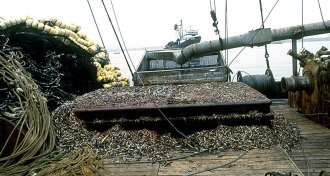 Environment
EnvironmentMost fish turned into fishmeal are species that we could be eating
Millions of tons of food-grade fish are turned into fishmeal for aquaculture and agriculture.
-
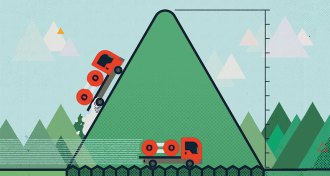 Chemistry
ChemistryNew, greener catalysts are built for speed
Researchers are designing catalysts to move chemical reactions without using precious metals, or at least using less of them.
-
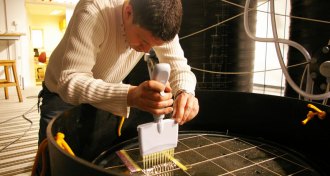 Oceans
OceansClimate change may boost toxic mercury levels in sea life
Increased runoff to the ocean due to climate change could raise neurotoxic mercury in coastal sea life by disrupting the base of the food web.
-
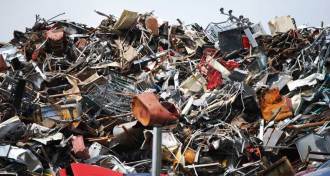 Environment
EnvironmentHumans’ stuff vastly outweighs humans
The human-made technosphere weighs 30 trillion tons and surpasses the natural biosphere in mass and diversity, researchers estimate.
-
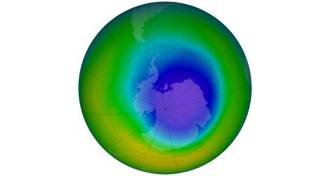 Earth
EarthYear in review: Ozone hole officially on the mend
Research this year confirms that the Antarctic ozone hole is healing — an international success attributed to cooperation and new technologies.
-
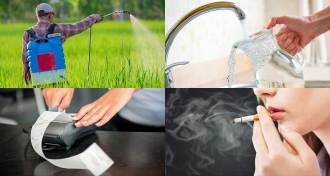 Genetics
GeneticsEpigenetic marks may help assess toxic exposure risk — someday
Exposure to things in the environment may change chemical tags on DNA and proteins, but it’s still unclear how to use that data to assess health risks.
-
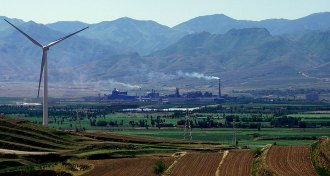 Climate
ClimateCO2 emissions stay steady for third consecutive year
Global emissions of carbon dioxide from human activities will probably see almost no increase in 2016 despite economic growth.
-
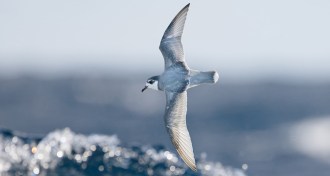 Environment
EnvironmentOcean plastic emits chemical that may trick seabirds into eating trash
Some seabirds might be eating plastic because it emits a chemical that smells like food.
-
 Environment
EnvironmentOcean plastic emits chemical that tricks seabirds into eating trash
Some seabirds might be eating plastic because it emits a chemical that smells like food.